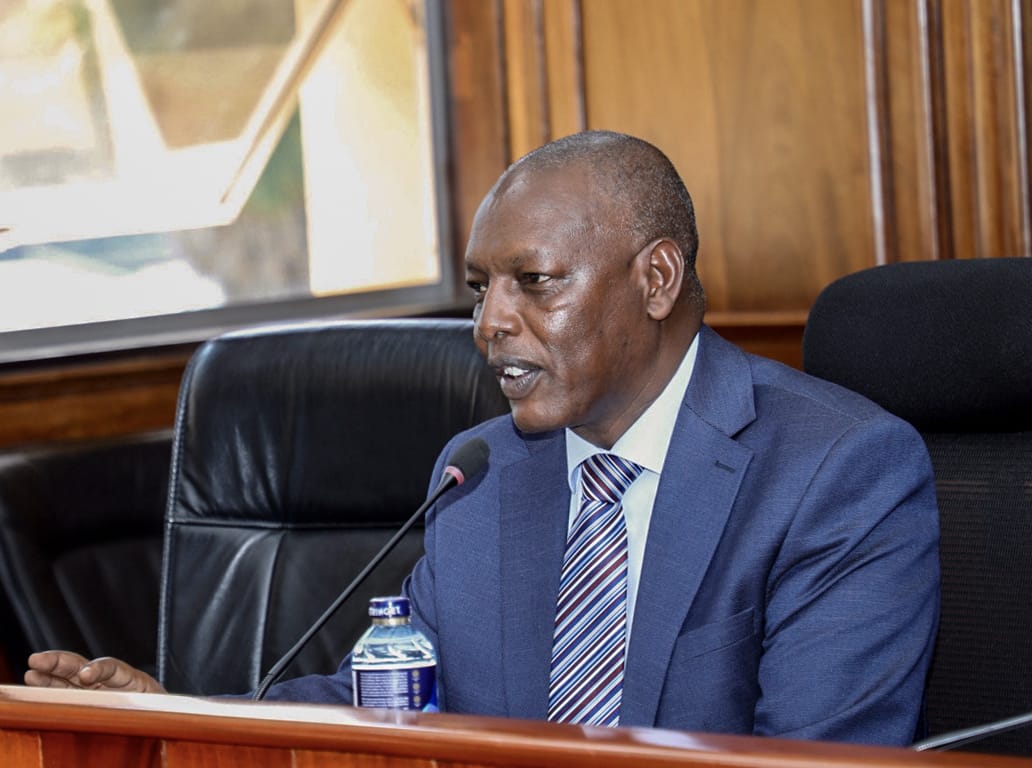State to extend macadamia export grace period by six months

Currently, over 30 industries in Kenya purchase macadamia nuts from farmers, mainly processing them for export.
Macadamia farmers in Kenya will continue to export their produce for an additional six months.
This decision follows the government's agreement to extend the grace period for macadamia exportation.
More To Read
- CS Kagwe announces policy overhaul for sugar, tea and miraa to protect farmers’ earnings
- Factory farming in Africa: Development banks see it as a good idea, but it’s bad for the climate
- AU calls for rapid tech adoption in farming to shield continent from food crises
- AFA orders macadamia traders to declare stocks ahead of harvest ban
- CS Kagwe urges bold reforms in agriculture sector as Intergovernmental Agriculture Forum opens in Naivasha
- Kenya wants China to remove tariffs on coffee, tea, avocados as trade imbalance persists
Agriculture Cabinet Secretary Andrew Karanja announced the extension on Thursday during a session with the Senate Agriculture Committee, chaired by Kirinyaga Senator James Murango.
"We will look at it and have an extension for six months as we conduct public participation," he said.
The government had lifted the ban on macadamia nut exports for one year, which ends on November 2, 2024.
This followed an outcry from farmers who suffered immense losses that saw them sell the nuts for as low as Sh10 per kilo, while others hawked them on the streets.
The losses were largely attributed to the fluctuating global market, impacted by factors such as the Russia-Ukraine war and currency fluctuations.
Under Section 43 of the Agriculture and Food Authority Act, 2013, local farmers are restricted from exporting nuts without the written approval of the Agriculture CS.
During his presentation, Karanja emphasised that the ministry did not intend to extend the export period solely to protect farmers who have long been exploited by brokers.
"The lifting of the ban for the export of nuts in shell should not be extended beyond November 2, 2024. This can always be revisited in case of a glut as provided for in section 43 of the AFA Act, 2023," the CS said.
He further explained that exporting raw macadamia nuts contradicts the government's policy of promoting local manufacturing and utilising existing processing infrastructure.
"The nuts in shell are primarily exported to China, which is not a final market destination. It is actually a processing hub receiving raw materials from Kenya," Karanja added.
However, the Senate committee urged the ministry to extend the grace period to allow farmers time to adapt.
Senator Murango highlighted the potential for significant losses if the ban is enforced in November, coinciding with the harvest season.
"Public participation will take time. Imposing the ban will affect those who are expecting to export," he stated.
Committee Vice Chairman, Senator Alexander Mundigi encouraged the ministry to extend the export period by at least one year to support farmers in recouping their investments.
"We are ready to go for public participation. We are pleading [with the ministry] to give us one more year. I promise you if you go to Embu today, farmers will tell you to permanently lift this ban," Mundigi said.
Kitui Senator Enoch Wambua stressed that the decision to permanently lift the ban should reflect the wishes of the farmers through public consultation.
Kenya is home to approximately 200,000 small-scale macadamia farms located across counties such as Embu, Meru, Machakos, Kirinyaga, Kiambu, Taita Taveta, Tharaka Nithi, Baringo, Murang'a, and Nyeri.
Additional counties, including Uasin Gishu, Elgeyo Marakwet, Bungoma, Kakamega, and Nandi, are joining the trend due to the high global demand for the crop.
These farms produce around 41,000 tonnes of in-shell nuts annually, representing about 20 per cent of the global supply.
Processing companies are now establishing operations in regions like Murang'a, Embu, and Taita Taveta, with plans for expansion into Bungoma.
Currently, over 30 industries in Kenya purchase macadamia nuts from farmers, mainly processing them for export.
Top Stories Today
















































